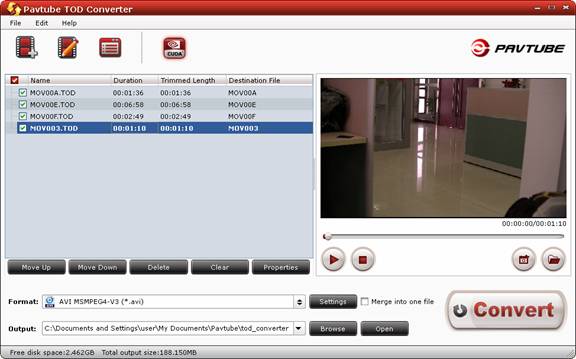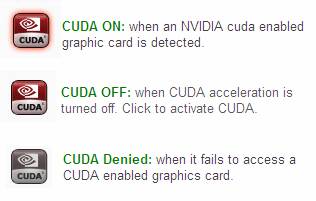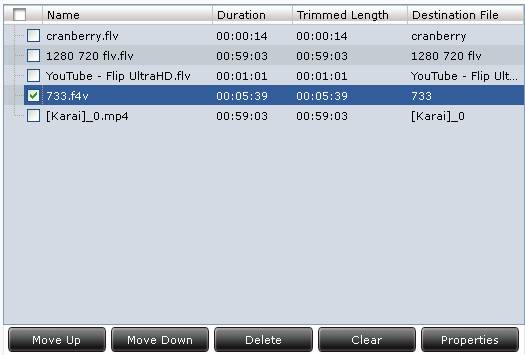User Interface
The user interface of Pavtube FLV/F4V Converter is very friendly and intuitive. Generally, there are Main Interface, Video Editor, Profile Manager, and Option panel for you to edit and convert movies. 
- To get a general idea of Pavtube FLV/F4V Converter, you may go to the Main Interface.
- To edit videos, you may go to Video Editor for details.
- To custom the output format list, please check Profile Manager.
- To configure options like thumbnails, update and TiVo Media Access Key, please check Configuration Option.
Main Interface
The main interface is composed of title bar, menu bar, toolbar, file list, media player, output settings area, and status bar.
1. Menu bar
There are three menus in menu bar, namely “File”, “Edit” and “Help”. ![]()
File: Contain operations like add file.
Edit: Edit selected task.
Help: Seek help and update information.
2. Toolbar
Three icons are displayed in the toolbar.

Add: Browse and load source files.
Edit: Edit selected file.
Option: Open Option panel.
CUDA: Turn on/ off CUDA. (En-decoding speed will be greatly accelerated when CUDA is turned on.

Note that CUDA is accessible only when there is an NVIDIA graphics card that supports GPU en-decoding acceleration. The CUDA button will be grayed out/ denied when the software fails to detect a satisfactory NVIDIA graphics card. And The CUDA works only when creating H.264 encoded video files. Click to learn more which graphics cards are supported)
3. File list/ task list
In the file list/ task list you can find task information like file name, duration, trimmed length, and destination. Under the file list there are control buttons to organize the conversion tasks.

Move Down: Move the selected file one line down.
Move Up: Move the selected file one line up.
Delete: Remove selected file from the file list.
Clear: Remove all the files from the file list.
Properties: View properties of selected task.
4. Media Player
The Media Player enables users to preview the video before conversion. Double-click on a file to preview it, or you can use the control buttons as well.
Play: Play or pause the video.
Stop: Quit previewing of the current playing file.
Snapshoot: Thumbnail present frame and save to specified place.
Open: Open the snapshots folder.

5. Output settings area
In output settings are you set output destination, format and its advanced parameters.
Format: Specify an output video/audio format.
Settings: Set advanced video and audio parameters.
Output: Show the output path.
Browse: Set output location.
Open: Open output folder that contains generated files.
Merge into one file: Combine and output all selected files as one file after conversion.
6. Status bar
The Status bar show you free space of your target disk and the storage occupation of current tasks.
![]()


 Home
Home





